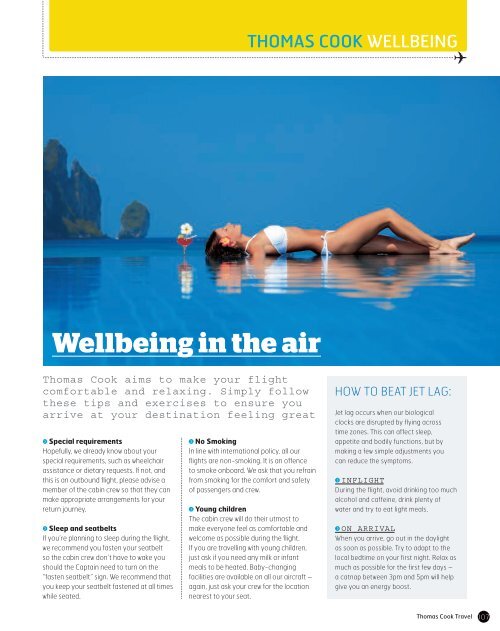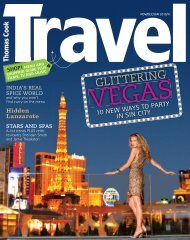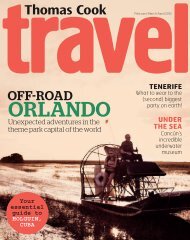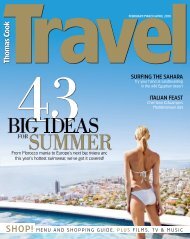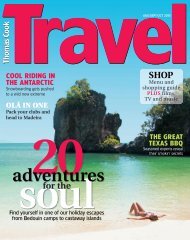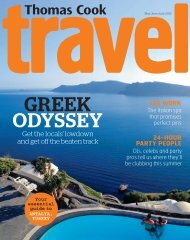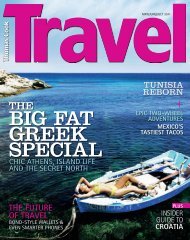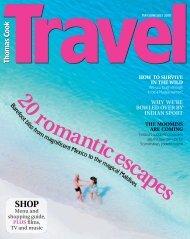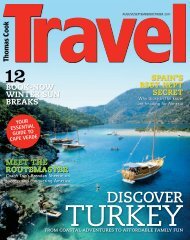november-2011
november-2011
november-2011
Create successful ePaper yourself
Turn your PDF publications into a flip-book with our unique Google optimized e-Paper software.
Wellbeing in the air<br />
Thomas Cook aims to make your flight<br />
comfortable and relaxing. Simply follow<br />
these tips and exercises to ensure you<br />
arrive at your destination feeling great<br />
Special requirements<br />
Hopefully, we already know about your<br />
special requirements, such as wheelchair<br />
assistance or dietary requests. If not, and<br />
this is an outbound fl ight, please advise a<br />
member of the cabin crew so that they can<br />
make appropriate arrangements for your<br />
return journey.<br />
Sleep and seatbelts<br />
If you’re planning to sleep during the fl ight,<br />
we recommend you fasten your seatbelt<br />
so the cabin crew don’t have to wake you<br />
should the Captain need to turn on the<br />
“fasten seatbelt” sign. We recommend that<br />
you keep your seatbelt fastened at all times<br />
while seated.<br />
THOMAS COOK WELLBEING<br />
No Smoking<br />
In line with international policy, all our<br />
fl ights are non-smoking. It is an offence<br />
to smoke onboard. We ask that you refrain<br />
from smoking for the comfort and safety<br />
of passengers and crew.<br />
Young children<br />
The cabin crew will do their utmost to<br />
make everyone feel as comfortable and<br />
welcome as possible during the fl ight.<br />
If you are travelling with young children,<br />
just ask if you need any milk or infant<br />
meals to be heated. Baby-changing<br />
facilities are available on all our aircraft –<br />
again, just ask your crew for the location<br />
nearest to your seat.<br />
HOW TO BEAT JET LAG:<br />
Jet lag occurs when our biological<br />
clocks are disrupted by flying across<br />
time zones. This can affect sleep,<br />
appetite and bodily functions, but by<br />
making a few simple adjustments you<br />
can reduce the symptoms.<br />
INFLIGHT<br />
During the flight, avoid drinking too much<br />
alcohol and caffeine, drink plenty of<br />
water and try to eat light meals.<br />
ON ARRIVAL<br />
When you arrive, go out in the daylight<br />
as soon as possible. Try to adapt to the<br />
local bedtime on your first night. Relax as<br />
much as possible for the first few days –<br />
a catnap between 3pm and 5pm will help<br />
give you an energy boost.<br />
Thomas Cook Travel<br />
107


